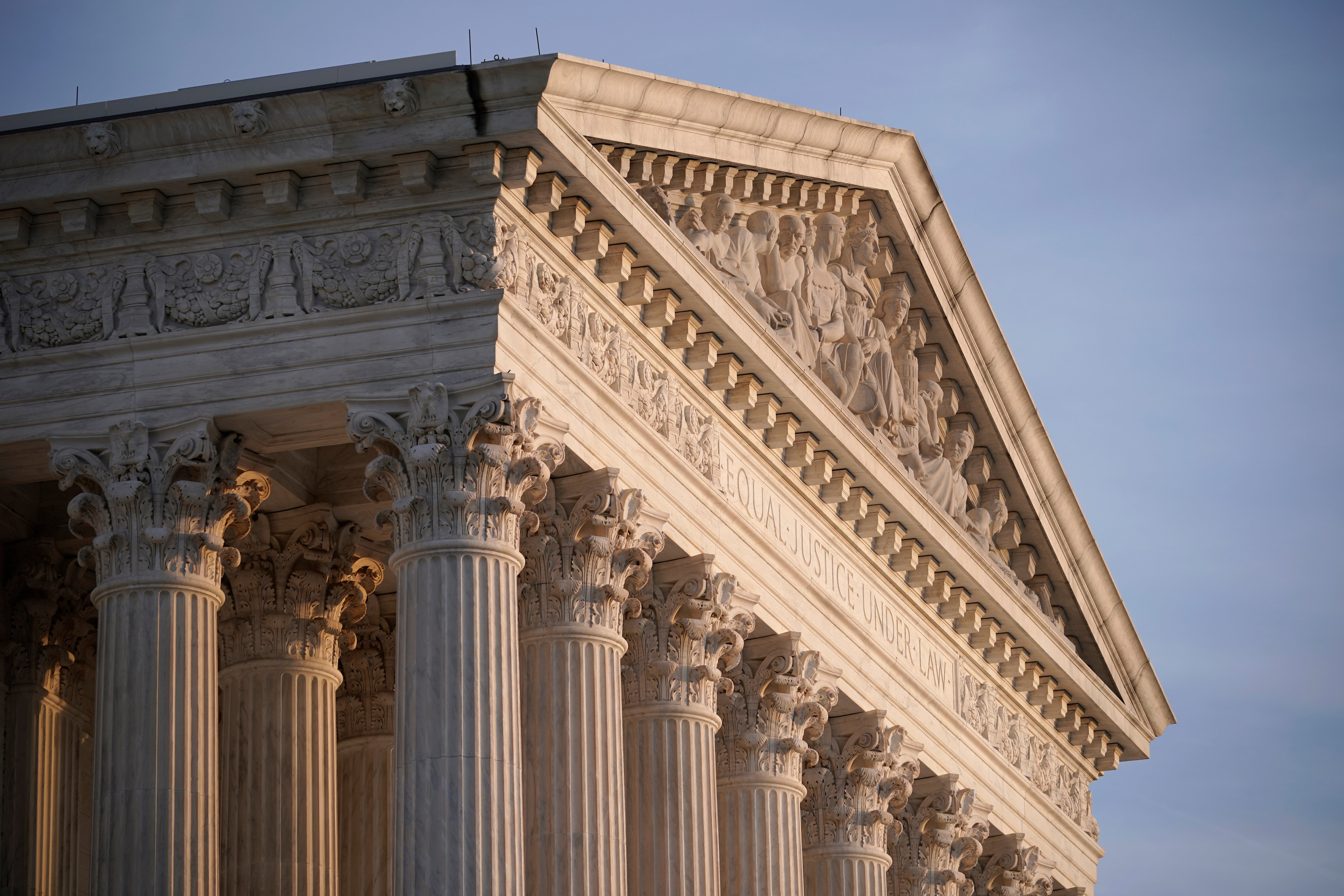Supreme Court wrestles with non-unanimous juries case
The Supreme Court is struggling with whether to require new trials for potentially thousands of prisoners in Louisiana and Oregon who were convicted by non-unanimous juries before the court barred the practice

Your support helps us to tell the story
From reproductive rights to climate change to Big Tech, The Independent is on the ground when the story is developing. Whether it's investigating the financials of Elon Musk's pro-Trump PAC or producing our latest documentary, 'The A Word', which shines a light on the American women fighting for reproductive rights, we know how important it is to parse out the facts from the messaging.
At such a critical moment in US history, we need reporters on the ground. Your donation allows us to keep sending journalists to speak to both sides of the story.
The Independent is trusted by Americans across the entire political spectrum. And unlike many other quality news outlets, we choose not to lock Americans out of our reporting and analysis with paywalls. We believe quality journalism should be available to everyone, paid for by those who can afford it.
Your support makes all the difference.The Supreme Court on Wednesday struggled with whether to require new trials for potentially thousands of prisoners in Louisiana and Oregon who were convicted by non-unanimous juries before the court barred the practice last year.
The high court last year ruled 6-3 that juries in state criminal trials must be unanimous to convict a defendant. Previously, Louisiana and Oregon as well as the U.S. territory of Puerto Rico had allowed divided votes to result in convictions. Now, juries everywhere must vote unanimously to convict.
But the Supreme Court's decision last year affected only future cases and cases in which the defendants were still appealing their convictions when the high court ruled. The question for the court now is whether the decision should be made retroactive. That would benefit prisoners convicted by non-unanimous juries whose cases were final before last year's ruling.
Several justices noted the very high bar past cases have set to making a new rule retroactive while also suggesting this case might clear it.
“Why isn't unanimity basic?” Justice Stephen Breyer asked during arguments the court heard by phone because of the coronavirus pandemic.
“How could it be that a rule like that does not have retroactive effect?” Justice Elena Kagan asked.